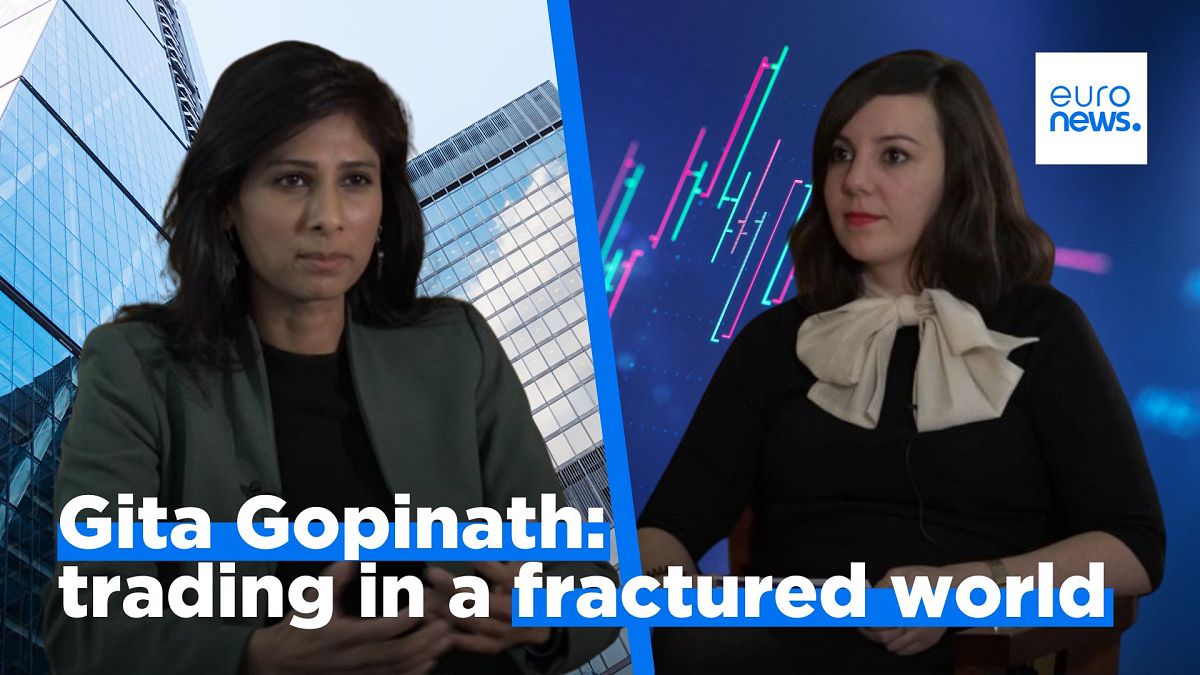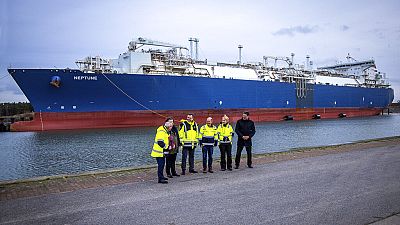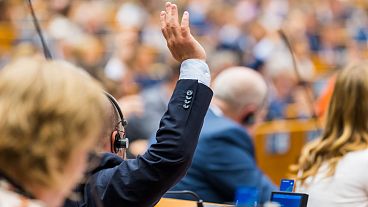Euronews sits down with Gita Gopinath, the first deputy managing director of the International Monetary Fund, to talk trade wars, net zero, and national security.
“Reshoring” and “de-risking” are words you may be seeing increasingly often in news articles and policy papers.
The first relates to the practice of moving a foreign-based business back to its original country (the opposite of off-shoring) and the second is about reducing reliance on “risky” trading partners.
From around 1992 to the financial crash of 2008, the world benefited from an explosion in international trade, which subsequently pushed up global living standards for the average citizen.
Now, experts say hyper-globalisation has started to falter.
“The world’s shared GDP has not really changed that much,” says Gita Gopinath, “but where countries are buying from is shifting around”.
In some countries, we are seeing an increase in protectionism, where states tax the import of foreign goods to champion domestic production. However, experts also warn of emerging tribalism between international trading partners.
In other words, countries are becoming increasingly likely to do business with political allies rather than hostile nations, leading to the formation of trading blocs along political lines.
The IMF points to a number of drivers behind this trend - notably Russia’s invasion of Ukraine and the COVID-19 pandemic - which led to concerns about domestic supplies of fuel and medical equipment.
"After the COVID-19 pandemic and Russia’s invasion of Ukraine, countries have become increasingly worried about resilience, about the security of their supply chains, about national security,” said Gopinath.
She explained that the “worse case scenario” would be a complete breakdown of trade between political blocs, a situation that could “reduce global GDP output by around 7%”.
That’s equal to around $7.4 trillion dollars (around €6.8 trillion), or equivalent to the combined size of the French and German economies.
To find out more about the dangers of global fragmentation, as well as how it could affect the road to net zero, watch our video above.



